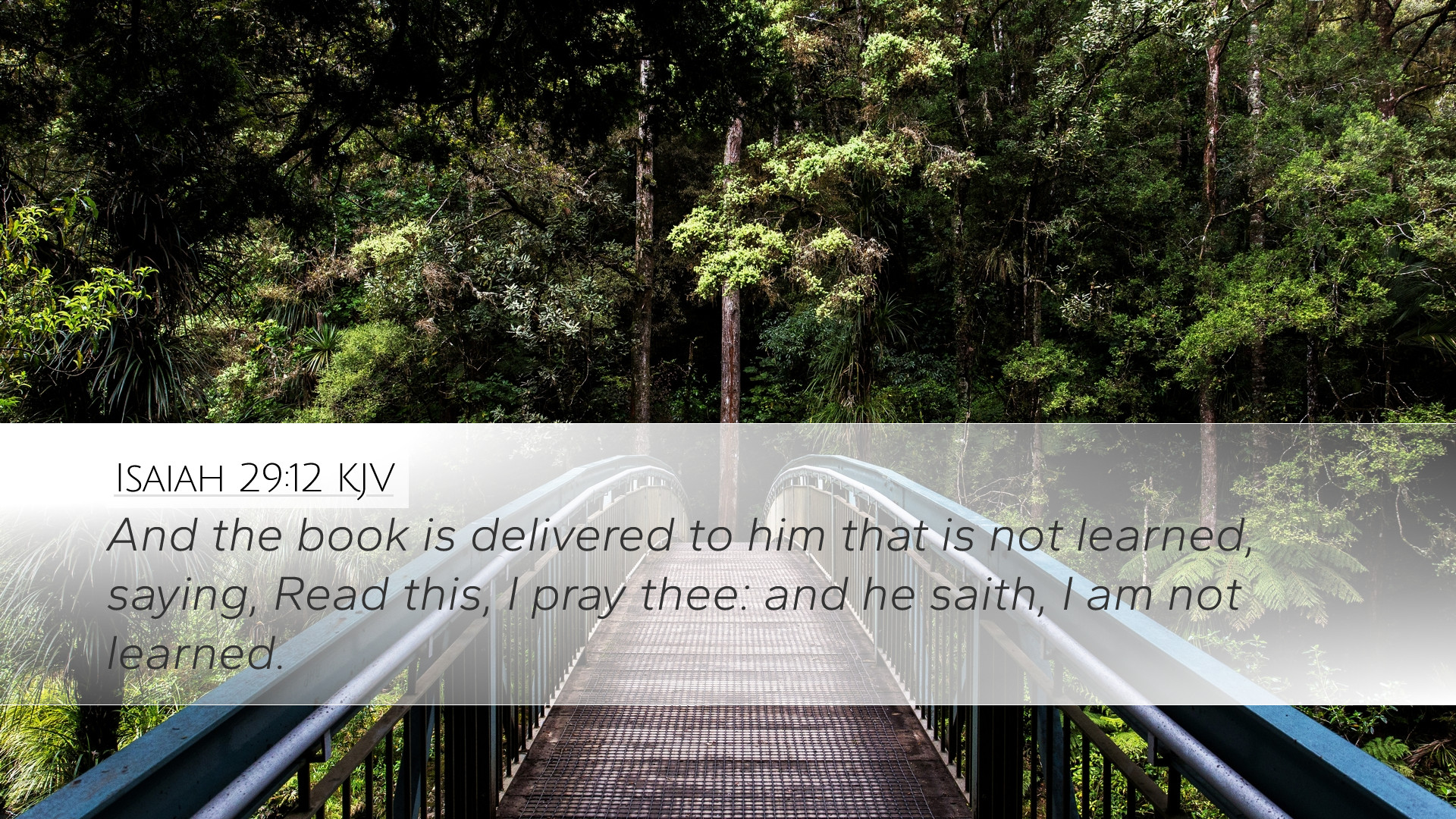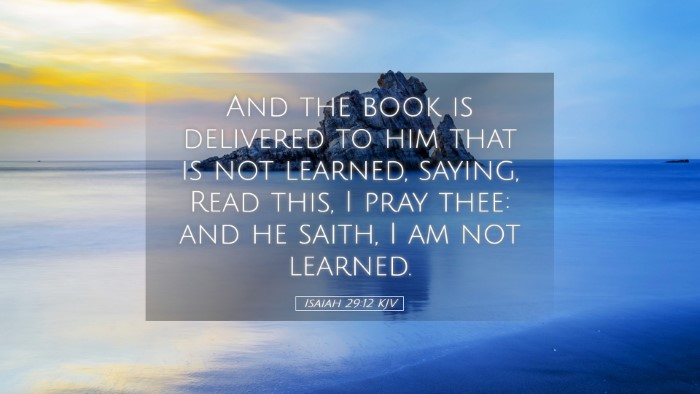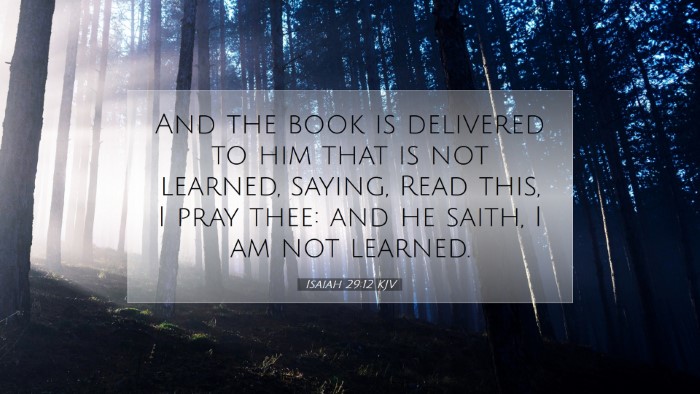Commentary on Isaiah 29:12
Verse: "And the book is delivered to him that is not learned, saying, Read this, I pray thee: and he saith, I am not learned."
Introduction
Isaiah 29:12 presents profound implications regarding the relationship between knowledge, understanding, and divine revelation. Public domain commentaries by notable theologians such as Matthew Henry, Albert Barnes, and Adam Clarke provide valuable insights into the textual and spiritual significance of this verse.
Contextual Analysis
The context of Isaiah 29 reveals a prophetic warning against the arrogance and spiritual apathy of Israel. This chapter illustrates the futility of relying on human wisdom over divine instruction. The "book" mentioned symbolizes divine revelation, specifically the law and prophetic writings, which the people had become indifferent to.
Insights from Commentaries
-
Matthew Henry:
In his commentary, Matthew Henry reflects on the spiritual blindness of the people. He emphasizes that the delivery of the book to someone "that is not learned" highlights the contrast between the perceived wisdom of the learned and the true wisdom that comes from God. Henry notes that the inability to read is not simply a lack of education but a spiritual condition indicative of the broader community's disconnection from God's will.
-
Albert Barnes:
Albert Barnes underscores the irony in the verse. He suggests that the inability of the unlearned man to read the book signifies the spiritual condition of the nation—filled with knowledge yet ignorant of divine truth. Barnes argues that this passage serves as a critique of those who neglect or misinterpret Scripture, as well as a divine rebuke for their reliance on earthly knowledge rather than divine enlightenment.
-
Adam Clarke:
Adam Clarke's commentary draws attention to the broader implications of the passage regarding spiritual adversity. He discusses the nature of divine communication and man’s readiness to receive it. Clarke mentions that this refusal reflects a heart turned away from God, symbolizing the hard-heartedness found within both individual and communal affairs. It alerts leaders to the grave consequences of failing to nurture a faithful relationship with Scripture.
Theological Implications
The theological undertones of Isaiah 29:12 extend beyond the immediate historical context. The verse represents a microcosm of the human condition—our tendency to reject God’s wisdom for our own. This disjunction bears fruit in several ways:
-
Spiritual Blindness:
As highlighted by the commentaries, the principal theme is one of spiritual blindness. The learned are unable to grasp the simplicity of God’s message because they rely on their education rather than divine revelation. This theme runs throughout Scripture, emphasizing that true knowledge begins with the fear of the Lord (Proverbs 1:7).
-
Importance of Divine Revelation:
The delivery of the book symbolizes the necessity of God's words to understand truth. In Isaiah’s day, as in contemporary society, the failure to heed divine wisdom leads to disastrous outcomes. Believers must strive to embrace the Word of God, allowing it to transform their understanding.
-
Response to God’s Word:
The individual’s response—“I am not learned”—reveals a profound truth about humility and the need for a receptive heart. It serves as a reminder that one's educational background does not equate to spiritual insight. One must approach the Scriptures with humility and a desire for understanding, irrespective of their academic achievements.
Application for Contemporary Believers
For pastors, students, theologians, and scholars, the implications of Isaiah 29:12 are pressing:
-
Encouraging Humility:
In teaching and preaching, leaders must foster an environment where humility in learning is encouraged. It is vital to acknowledge that spiritual understanding is a gift from God that transcends human learning.
-
Promoting Scriptural Engagement:
Followers of Christ are called to actively engage with Scripture. This engagement must be grounded in prayerful consideration and reflection on God’s Word, seeking the Holy Spirit’s guidance for illumination.
-
Addressing Spiritual Apathy:
Isaiah’s context reveals that spiritual apathy was prevalent. Today, pastors should address this issue by emphasizing the need for continuous spiritual growth and engagement with God's Word to combat the distractions of modern life.
Conclusion
Isaiah 29:12 resonates profoundly within the landscape of faith, highlighting the necessity of spiritual openness and divine revelation. The commentaries provide a multifaceted view of the verse, urging believers to reexamine their approach to Scripture. The spiritual lessons extracted are timeless; they call forth a renewed commitment to engage with God's Word and embody the humility necessary to receive divine truth.


